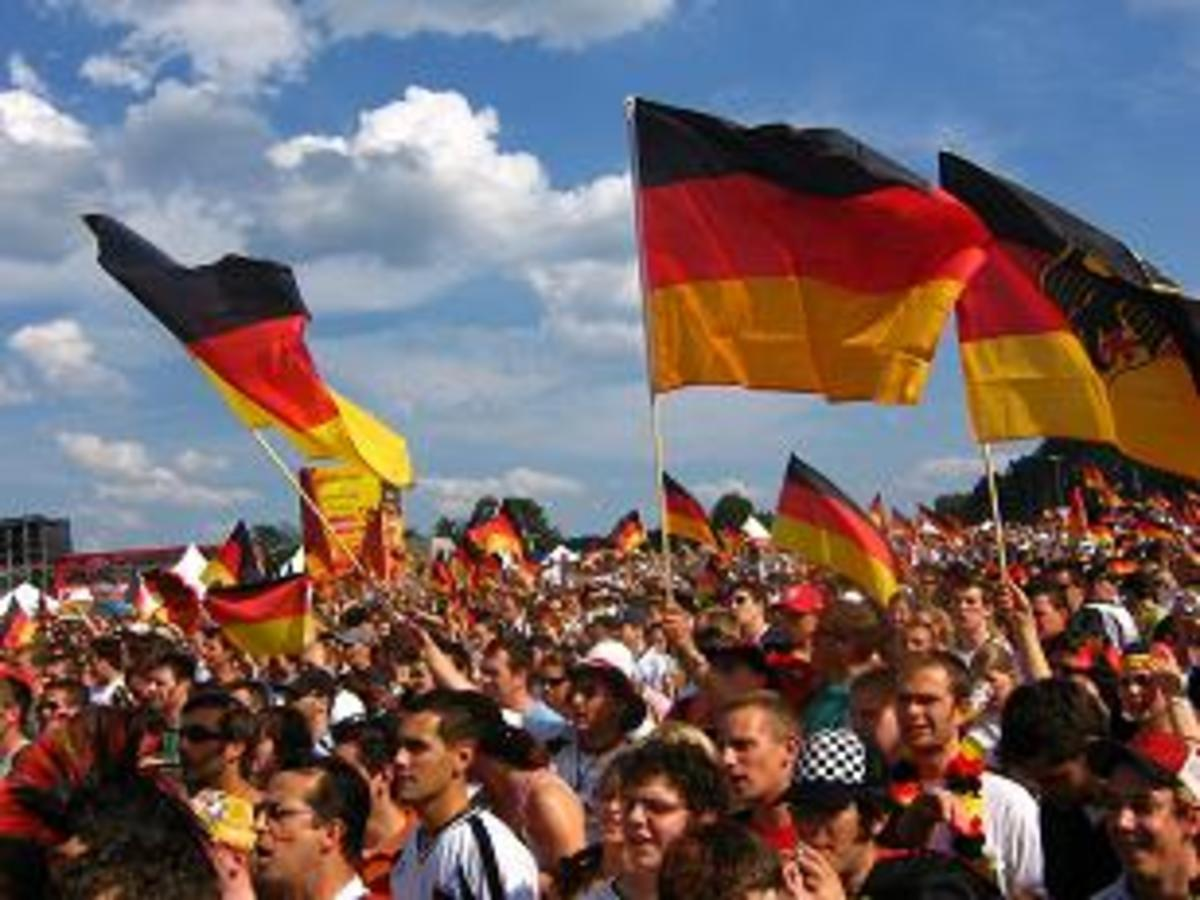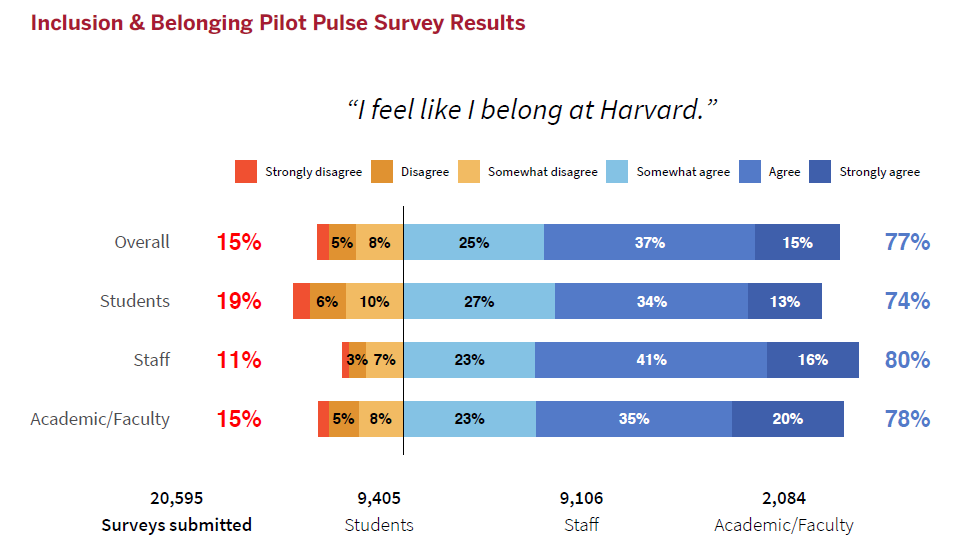German identity is a complex construct shaped by history, culture, and socio-political dynamics, deeply influenced by the Cold War. The enduring divide between East and West Germany has left a lasting imprint on the national consciousness, with many citizens still grappling with their regional identities decades after reunification. As observed in Addie Esposito’s thesis, the remnants of the East-West divide continue to color perspectives within the German parliament, indicating that history is not merely a relic but an active force in shaping contemporary German culture and politics. This phenomenon underscores the necessity of understanding the impact of political history on modern identity, as the Cold War’s ideological battleground still resonates in legislative discussions and public sentiment. By analyzing the interconnections between national pride and regional differences, we can appreciate the nuances of German identity that persist today.
Exploring the essence of German self-identity reveals a tapestry woven from various historical influences, particularly the significant events surrounding the Cold War. The stark division that characterized life in East and West Germany remains a reference point in conversations about national unity and cultural evolution. Scholars, such as Addie Esposito, highlight how this division informs political attitudes and cultural perspectives, shaping a distinctly modern German narrative. The legacy of the past not only informs political structures but also cultivates a rich dialogue about what it means to identify as German in a globalized world. By delving into the interplay between regional identities and national belonging, we uncover the layers that define contemporary German society.
The Legacy of the Cold War on German Identity
The Cold War has left an indelible imprint on the German identity, as demonstrated by Addie Esposito’s thesis that explores the enduring divide between East and West Germany. After the Berlin Wall fell in 1989 and Germany was reunified in 1990, it was widely believed that the historical rift would dissolve swiftly. However, Esposito’s research indicates that the divide, shaped by cultural, political, and social influences, persists two generations later. The shifting dynamics of German identity reflect not only personal narratives but also the complex legacy of a divided country that continues to manifest in contemporary politics.
Esposito’s investigations reveal a clear distinction in identity formation, particularly among parliamentarians from the former East Germany. More than half of those surveyed still identify as East Germans, a testament to the resilience of their identity shaped by the adversities faced during the GDR era. This phenomenon emphasizes how the Cold War not only influenced governmental policies but also grounded personal identities and collective memories, leading to a unique sense of pride among East Germans that diverges from the West German narrative.
Cultural Divides: East vs. West Germany
The cultural schism between East and West Germany remains a significant aspect of the nation’s socioeconomic landscape. In her thesis, Esposito argues that the historical contexts in which East and West Germans were raised fundamentally shape their identities and perceptions of national pride. While West Germans tend to express a complex blend of pride and hesitance regarding their national identity, East Germans often voice unambiguous expressions of pride in their heritage, stemming from a belief that they contributed significantly to Germany’s reunification.
This cultural divide is exacerbated by the memories of the Cold War, where East Germans positioned themselves against the oppression of the Soviet regime and clung to a narrative of overcoming adversity. The persistence of these divergent identities can be evaluated through the lens of political engagement, where perceptions of political representation and experiences of marginalization differ markedly. The current political landscape continues to reflect these divides, revealing the ongoing impact of the Cold War on German culture and governance.
The Influence of the Bundestag on German Politics
The Bundestag, Germany’s federal parliament, plays a crucial role in shaping the nation’s political identity, particularly in light of the historical East-West divide. Esposito’s internship at the Bundestag provided her with direct insights into the political dynamics and the complex relationships among legislators stemming from different regions. As she noted, interactions within this political institution reveal not only the lingering effects of the Cold War but also the ongoing struggles of identity politics within the contemporary framework of German governance.
Through her interactions with over 183 parliamentarians, Esposito identified distinct regional allegiances that reflect personal and collective histories. The firewall that maintains a divide between mainstream parties and the far-right Alternative for Germany (AfD) underscores the challenges within German politics and demonstrates how the legacy of historical divides continues to influence policymaking. The differentiation between parliamentarians from the East and West also illuminates the broader narrative of how Germany reconciles its tumultuous past with its aspirations for political unity.
German Political Culture in a Post-Cold War Era
In the post-Cold War era, German political culture has transformed significantly, yet remnants of the past persist in the identities and affiliations of its citizens. The research conducted by Esposito sheds light on the complexities of political identity among the East German population, where an overwhelming majority cling to their regional identity. This devotion to regional roots is a characteristic deeply intertwined with the historical context of division, showcasing how cultural and political sentiments are carved from a nation’s history of conflict and reconciliation.
Esposito’s findings suggest that understanding political culture in Germany requires an appreciation of both the enduring historical influences and the evolving nature of identity. The continuing relevance of the Cold War and its legacy vividly illustrates how past divisions inform contemporary political discourse, essentially crafting a political landscape where history reverberates through the voices of those in power and their constituents. Such dynamics highlight the importance of inclusive dialogues in addressing not only past grievances but also forging a unified vision for Germany’s future.
Challenges of Identity in a United Germany
Germany’s reunification has not obliterated the complexities of identity; rather, it has complicated them as different narratives and experiences vie for recognition. Esposito’s thesis pulls back the curtain to reveal how identity discrepancies manifest within the realm of politics, especially among those who once lived in the GDR. The persistent challenges faced by individuals in reconciling their East or West German identities with a unified national narrative illustrate the ongoing quest for integration and acknowledgment of diverse histories within a single state.
Moreover, the sense of discrimination felt by East Germans, as articulated in Esposito’s interviews, underscores the nuanced dialogues still necessary within the political arena. It reflects the sentiment among East Germans of being perceived as ‘other’ in a unified Germany, which continues to impact their political and social standing. Addressing these challenges will be crucial for fostering unity, as the political elite navigates the vestiges of the Cold War and seeks to elevate a shared German identity that honors all experiences.
The Role of Education in Shaping German Identity
Education plays a pivotal role in shaping national narratives and identities, particularly in a nation still grappling with the legacies of its past like Germany. Esposito’s pursuit of her interests in German culture and politics at Harvard reflects the transformative power of educational experiences in understanding complex histories. Educational institutions are avenues through which young Germans are encouraged to engage with their historical narratives, fostering a sense of identity that evolves with generations and continues to address historical inequities.
Furthermore, studying the cultural and political histories of a divided Germany has become integral to curricula aimed at nurturing informed citizens. The divergence in how students from the East and West approach their identities can inform educators on the necessity of inclusive pedagogies that integrate multiple perspectives from the country’s past. This approach can cultivate a more nuanced understanding of German identity, one that resonates with current realities and ensures that the lessons of history motivate collective progress forward.
Exploring Addie Esposito’s Unique Perspective on Germany
Addie Esposito’s approach to exploring the nuances of German identity offers an innovative perspective that intertwines personal history with scholarly inquiry. Her compelling thesis, derived from real-life interviews with German lawmakers, provides a rich qualitative analysis that goes beyond conventional methods of studying national identity. By focusing on political elites and how they relate their identities to the country’s historical circumstances, Esposito delivers insights that are essential for understanding contemporary German politics.
Her framework illustrates how personal narratives inform broader sociopolitical attitudes, revealing the intricacies of identity formation in post-Cold War Germany. Esposito’s unique blend of personal fascination with German culture and rigorous academic study exemplifies how individual passion can drive meaningful research. This synthesis offers valuable lessons for future generations, highlighting the importance of combining personal experiences with sociopolitical inquiry to cultivate a deeper understanding of national identities.
Historical Context and Its Impact on Modern Politics
The historical context of Germany’s division has lasting implications for its modern political landscape. The implications of a divided nation continue to resonate in current political dialogues and struggle for coherence among the citizenry. As Esposito’s research illustrates, East Germans perceive their identity through the lens of a robust historical narrative, framed by both the challenges and the triumphs of reunification. This historical context is vital for understanding today’s political alignments and electoral patterns in the country.
Political parties’ responses to the past, particularly the narratives adopted surrounding the Cold War, shape their platforms and, by extension, public perceptions. By examining these historical influences critically, researchers and policymakers can better grasp the motivations behind contemporary political discourse in Germany. In turn, this understanding can foster more inclusive dialogues that bridge divides while providing a roadmap for a cohesive national identity that honors both East and West Germany’s histories.
Looking Toward the Future: Insights from German Politics
As Germany continues to navigate challenges stemming from its historical divides, the insights provided by Esposito’s various engagements within the Bundestag echo the importance of thoughtful leadership in fostering unity. Understanding how the lingering effects of the Cold War shape political opinions is instrumental for future leaders determined to cultivate a more inclusive national identity. Esposito’s work inspires an approach focused on collaboration among political elites that transcends geographic and ideological lines.
Looking ahead, the journey of reconciliation for East and West Germany will remain complex yet crucial. Future leaders must harness the lessons from historical divides to strengthen the fabric of German identity, uniting a diverse population under shared goals and experiences. Embracing the multiplicity of narratives will not only enhance political engagement but also propel Germany toward a future where its citizens, regardless of their East or West origins, can thrive collectively.
Frequently Asked Questions
How does the Cold War influence contemporary German identity?
The Cold War significantly shaped contemporary German identity by embedding a persistent divide between East and West Germans in the national consciousness. Despite reunification in 1990, many people from the former East Germany continue to identify as East Germans, reflecting a unique political culture and historical experience that diverges from their West German counterparts. Addie Esposito’s thesis highlights how these identities endure, impacting political dynamics and cultural perceptions in Germany.
What role does Addie Esposito’s thesis play in understanding German identity?
Addie Esposito’s thesis provides a critical analysis of how the Cold War’s legacy persists in shaping German identity today. By examining interviews with lawmakers from the Bundestag, she reveals that many politicians from East Germany maintain a strong East German identity, which influences their political perspectives and regional allegiances. This work emphasizes the ongoing relevance of historical divisions in contemporary German culture and politics.
What does the East-West German divide reveal about German political culture?
The East-West German divide reveals deep-seated differences in political culture and identity among the German populace. The enduring significance of regional identities, as explored in Esposito’s research, demonstrates that individuals from former East Germany often perceive their historical narratives and political affiliations distinctly, continuing to influence contemporary political discourse and party dynamics within Germany.
How do cultural factors shape German identity since the Cold War?
Cultural factors play a crucial role in shaping German identity post-Cold War, as narratives of history from both East and West continue to influence public sentiment and pride. The contrasting experiences of East Germans, who often embrace a sense of adversity and achievement linked to reunification, versus West Germans, who may express a more complex relationship with national pride, underscore the nuanced landscape of German identity today.
What insights does Addie Esposito offer regarding the persistence of East German identity?
Addie Esposito offers valuable insights into the durability of East German identity, which she describes as being rooted in both adversity and a positive sense of distinctiveness. Her research indicates that many East Germans see themselves as contributors to reunification, fostering a resilient identity despite socioeconomic challenges. This perspective highlights the complexities of how history continues to shape national identity in contemporary German politics.
How do parliamentarians from East and West Germany differ in their national identification?
Parliamentarians from East Germany tend to identify more strongly as East Germans, with many attributing their identity to regional experiences and the legacy of the GDR. In contrast, West German politicians frequently identify as broadly German or European, showing less emphasis on regional identity. This difference elucidates the ongoing impact of the historical divide on current political identities within Germany.
What challenges do East Germans face in expressing their identity?
East Germans often face challenges related to discrimination and a perceived lack of political representation, as highlighted in Esposito’s thesis. Many express feelings of being overlooked or marginalized within the broader German identity narrative. This tension underscores how historical divisions continue to manifest in contemporary society and politics, impacting East Germans’ ability to assert their identity effectively.
Why is understanding German identity important in the study of politics?
Understanding German identity is crucial in political studies because it reflects how historical contexts shape current political affiliations, party dynamics, and governance in Germany. As seen in Esposito’s research, the legacy of the Cold War continues to inform political behavior and identity, influencing policymaking and political discourse within a unified Germany.
| Key Points |
|---|
| Addie Esposito’s thesis explores the lingering impact of the Cold War on German identity, particularly the divide between East and West Germany. |
| The thesis advisor, Daniel Ziblatt, notes that the expectation of a quick resolution of the East-West divide post-1990 has not materialized, leading to a lasting feature of German political culture. |
| Esposito’s research was based on interviews with 183 parliamentarians in the Bundestag, revealing significant insights into their identities. |
| More than half of parliamentarians from the former East Germany identify primarily as East German, demonstrating a persistent regional identity. |
| The contrasts between East and West Germany extend to feelings of national pride and perceptions of discrimination, influencing how Germans relate to their history. |
| Esposito aims to further her studies in public policy and deeper understanding of German politics, aspiring to use her German skills in her future career. |
Summary
German identity is heavily influenced by the historical context of the Cold War, as analyzed in Addie Esposito’s thesis. This examination reveals that the divide between East and West Germany has persisted well into the present, shaping political interactions and regional identities. Understanding this complex legacy allows for a deeper appreciation of how historical narratives continue to inform modern German identity, highlighting the lasting effects of Germany’s bifurcated past.




